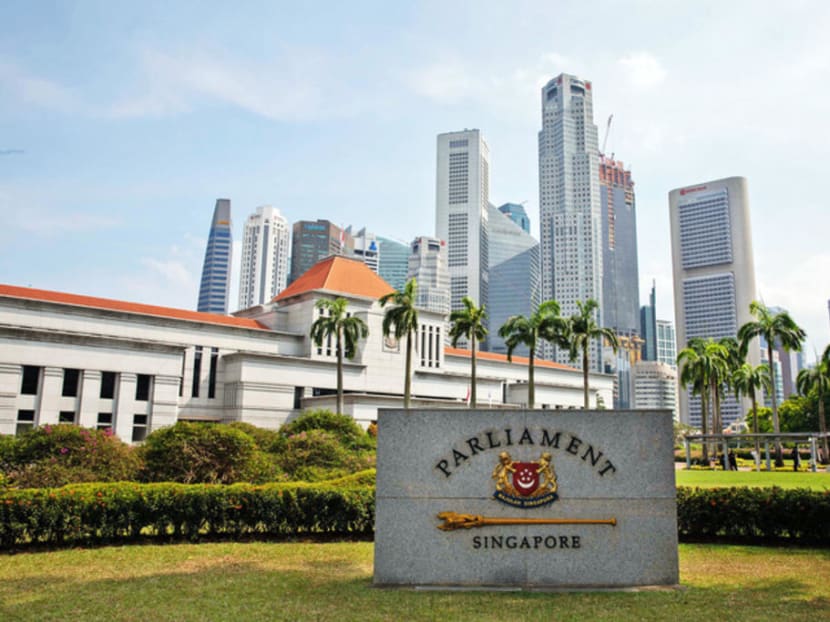Draft law doesn't bar meetings by groups with foreigners who have no control over them: MHA
SINGAPORE — Under a proposed law on foreign interference, members of two civil society groups in Singapore can continue to conduct activities such as talks and meetings with foreigners as long as these individuals do not have control or power over them.

MHA said the intent of draft laws on foreign interference is not to stifle political expression or activity but to prevent foreign influence via local proxies.
- MHA made these clarifications in response to concerns from human rights groups Maruah and Think Centre
- They had questioned whether their activities will come under greater scrutiny under the proposed law on foreign interference
- MHA said the intent of Fica is not to stifle political expression or activity but to prevent foreign influence via local proxies
SINGAPORE — Under a proposed law on foreign interference, members of two civil society groups in Singapore can continue to conduct activities such as talks and meetings with foreigners as long as these individuals do not have control or power over them.
The Ministry of Home Affairs (MHA) made these clarifications on Saturday (Sept 25) in response to queries from TODAY after the two human rights groups, Maruah and Think Centre, questioned if their activities will come under greater scrutiny if the draft laws are passed.
Said MHA: “The intent of the Foreign Interference (Countermeasures) Act (Fica) is not to stifle political expression or activity, but to try to prevent foreign influence in our domestic politics via local proxies.”
Under the Bill to enact Fica, the authorities would be able to designate individuals and entities as “politically significant persons”.
They would be subject to strict measures, including having to make regular declarations of their affiliation with any foreign entity and report donations of S$10,000 or more.
The new law, if passed, will replace the current Political Donations Act, which already imposes certain restrictions on donations to political parties and associations.
All political associations gazetted under the Political Donations Act will be automatically designated as politically significant persons under Fica.
Right now, Maruah and Think Centre, are the two non-governmental organisations (NGOs) that have been gazetted in this way.
TODAY previously reported that Maruah had concerns over whether the draft laws would prohibit it from meeting with counterparts from other Southeast Asian nations, which it does regularly as a Singapore representative to the grouping’s regional working group for a human rights mechanism.
Think Centre, on the other hand, said the Bill paints Singaporeans as “people who cannot think for themselves” and suggests that all foreigners have an “ulterior motive”.
In its reply to TODAY, MHA reiterated that both NGOs are currently subjected to the following requirements under the Political Donations Act:
They are required to submit an annual declaration of donations of S$10,000 or more from permissible donors
Prohibited from receiving donations from impermissible donors
Subjected to an anonymous donations cap of S$5,000
Donors to both organisations are also required to disclose donations of more than S$10,000
These requirements would be maintained under Fica, said MHA.
In addition, Think Centre and Maruah will have to comply with two new obligations:
They have to establish and maintain a dedicated bank account to receive political donations
They have to declare any foreign affiliations
MHA defined foreign affiliations as “relationships with foreign principals who are in positions of control of power over the politically significant persons”, or where these persons “are directly affiliated with the foreign principals, or are employed by the foreign principals”.
“Think Centre’s or Maruah’s members taking part in a talk held by a foreign organisation, having a lunch meeting with a foreigner, attending a talk with a foreign speaker, or taking part in discussions with other Association of Southeast Asian Nations working groups, would not constitute foreign affiliation as long as the foreigners do not have control or power over them,” said MHA.
But it added that an appointed “competent authority” may impose further stepped up countermeasures on politically significant persons should he or she be satisfied that the politically significant person is undertaking, has undertaken, or is about to undertake an activity on behalf of a foreign principal.
These countermeasures would also be taken if it is in the public’s interest for such a directive to be given, MHA said.











